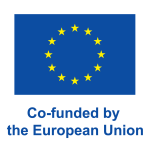- Project number: KA220-VET-02C80CD9
- Duration: 24 months (2022-2023)
- Project Partners: Eurokreator T&C (Poland), ABC-Czepczyński (Poland), Urban Research and Education (Germany), Työtehoseura Ry (Finland)
The primary objective of the project is to enhance training opportunities in the TLS sector. The project seeks to offer remote education and validation tools, methods, inspiration, and best practices. It aims to improve cooperation and knowledge exchange between vocational education institutions and businesses, while also enhancing the expertise of project partners through international activities.
The purpose of the project is to establish a comprehensive set of tools, including:
1. Mapping and Microcompetence Profiler,
2. Remote Validation Course – TLS Guidelines,
3. Remote Validation Tools,
4. Support System for Institutions.
The project intends to incorporate industry education within the context of digital transformation and the so-called new reality. The project strives to develop hybrid and online learning methods and techniques. In the era of global epidemics and possible future similar threats, many fields, including education, need to replace face-to-face contacts and offer solutions that enable remote delivery of services. Automation of the training process, with a special focus on validation, applies at all stages: data collection, verification, contact with the participant and online validation, including the execution and evaluation of validation tasks. This project assumes that the user should be accustomed to using IT tools through hybrid methods and teaching automation. The project’s rationale is supported by research conducted by the European Logistic Association in 2018-19. The research highlighted the necessity for changes in digital competences among employees in the TFL sector due to industry’s impact on the environment and labor market changes (industry 4.0). These changes primarily involve qualifications at the technological level 4, encompassing the adoption of technological solutions, comprehension of sustainable development practices (referred to as „green” competences), understanding and promotion of new technologies and data mining for improved management of orders and procedures. Moreover, it emphasizes the importance of integrating data mining skills with other key supply chain parameters, as well as possessing knowledge and proficiency in areas such as analytics, artificial intelligence, workflows, and the Internet of Things. Lastly, it emphasizes the need for understanding, implementing, and promoting innovative initiatives throughout the organization.


